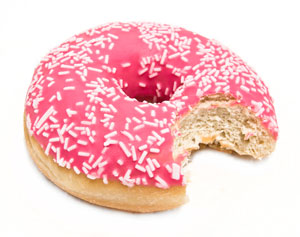 New research from the Mayo Clinic in Scottsdale, AZ has found that elderly patients who eat higher levels of calories are more likely to suffer from memory loss. Researchers found that patients who overeat the most were twice as likely to suffer from mild cognitive impairment (MCI) as patients who ate less than 1,526 per day. MCI is a form of memory loss that is more severe than normal age-related memory loss and less severe than Alzheimer’s. The study was led by Yonas Geda and will be presented at the American Academy of Neurology’s conference in April.
New research from the Mayo Clinic in Scottsdale, AZ has found that elderly patients who eat higher levels of calories are more likely to suffer from memory loss. Researchers found that patients who overeat the most were twice as likely to suffer from mild cognitive impairment (MCI) as patients who ate less than 1,526 per day. MCI is a form of memory loss that is more severe than normal age-related memory loss and less severe than Alzheimer’s. The study was led by Yonas Geda and will be presented at the American Academy of Neurology’s conference in April.
The survey analyzed the eating habits of 1,233 dementia-free participants between the ages of 70 and 89. The participants self-reported their daily eating habits, and were divided into three groups depending on their caloric intake. The lowest group consumed less than 1,526 calories per day, the middle group ate 1,526 to 2,143 calories, and the highest group ate between 2,143 and 6,000.
The results were adjusted to account for other factors that have been shown to affect memory, including level of education, diabetes and a history of strokes. Although researchers do not understand the biomechanics that link higher levels of calories to brain function, they theorized that unnecessary calories stimulate stress hormones in the brain that may contribute to memory loss.
The study is supported by earlier research that shows that higher calories among older people puts people at a higher risk for Alzheimer’s disease and a study that suggested cutting calories can boost memory. Additionally, Australian research on rats has also shown links between increased caloric intake and poor memory. Gega says that a healthy diet may prevent memory loss as we age, in addition to many other health benefits.
Also Read:
New Weight Loss Surgery and Memory Link Found
Fatty Foods Can Boost Memory
